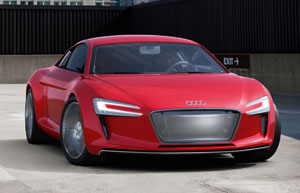
A major European research project will spend €44 million ($66 million) on developing tiny components to improve electric-vehicle performance.
The E3CAR (energy efficient electrical car) project, backed by Fiat Automobiles SpA and Audi AG, will focus most sharply on emerging nanotechnologies aimed at boosting EV range.
Program participants are expected to explore nanotechnology developments related to semiconductors, circuits and subsystems.
The researchers say there is potential to boost energy efficiency more than 35% compared with existing technologies, saving raw materials and energy. The project also aims to develop improved solar-energy systems for EVs, which would slash their associated carbon-dioxide emissions levels closer to zero.
As for the current limited driving range, high cost and overall limited efficiency of EVs, E3CAR participants say solutions can be found by developing subsystems for energy storage, battery technology, power conversion, electric powertrain, energy management and connection to the power grid.
The key thread running through many of these projected improvements is the application of nanoelectronics to boost battery life; create sensors, connectors and component housing able to resist temperatures exceeding 392º F (200º C); and make more-efficient transistors based on ultra-thin chips.
Companies involved also include Germany’s Infineon Technologies AG (the project coordinator), ATMEL Automotive GmbH, Siemens AG and Robert Bosch GmbH; France’s STMicroelectronics; Finland’s VTT Technical Research Center; and Netherlands-based electronics giant Koninklijke Philips Electronics N.V.; plus 26 others.
Funding comes from the European Union, ENIAC (the European Nanoelectronics Initiative Advisory Council) and public research funding organizations in Austria, Belgium, Czech Republic, Finland, France, Germany, Ireland, Italy, the Netherlands, Norway and Spain.




